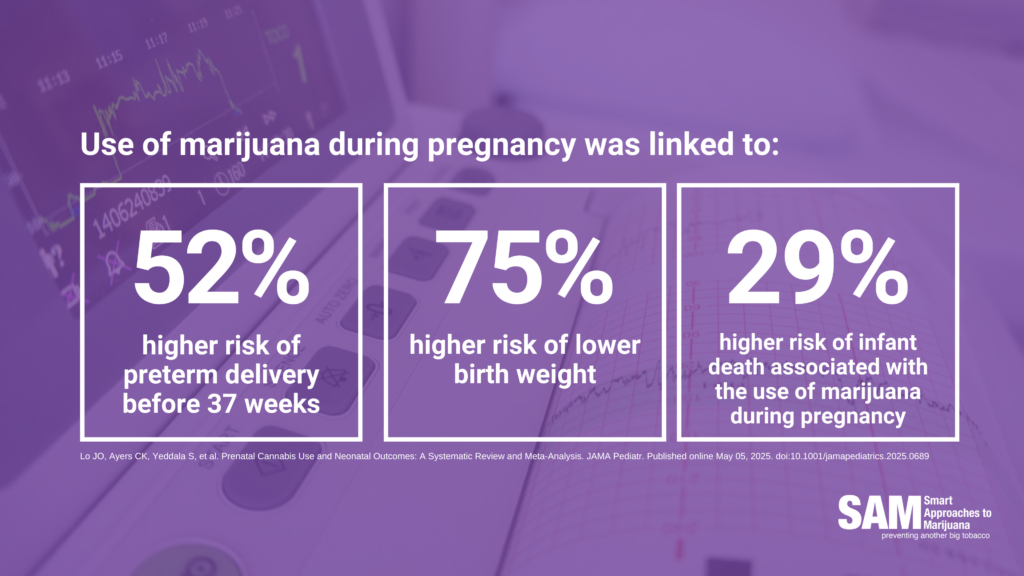
A systematic review found that prenatal marijuana use is associated with significantly increased odds of adverse neonatal outcomes, even after adjusting for factors such as tobacco use. Findings showed increased risks for low birth weight, preterm birth, and small for gestational age infants. Use of marijuana during pregnancy was linked to a 52% higher risk of preterm delivery before 37 weeks. It was also linked to a 75% higher risk of lower birth weight. Additionally, authors found a 29% higher risk of infant death associated with the use of marijuana during pregnancy. The authors noted that heavier marijuana use further increased the odds of these adverse outcomes.
THC, the main psychoactive marijuana component, can cross the placenta and interacts with fetal cannabinoid receptors. This has raised concerns about fetal development while marijuana is being used. Despite this, counseling on marijuana use in pregnancy is inconsistent partly due to previous limited and mixed evidence. This study strengthens the evidence-base and increases confidence in the association of prenatal marijuana use with neonatal risks.
The authors highlight the clinical and public health implications of their findings, suggesting that “health care professionals should include this in their patient counseling, and increased public health measures are needed to raise awareness on safety of use.”
This review provides robust evidence that prenatal marijuana use increases the risk of adverse neonatal outcomes such as low birth weight, preterm birth, and small for gestational age infants. These findings should inform patient counseling and shape future public health policies aimed at reducing prenatal marijuana exposure to improve pregnancy and offspring health outcomes.